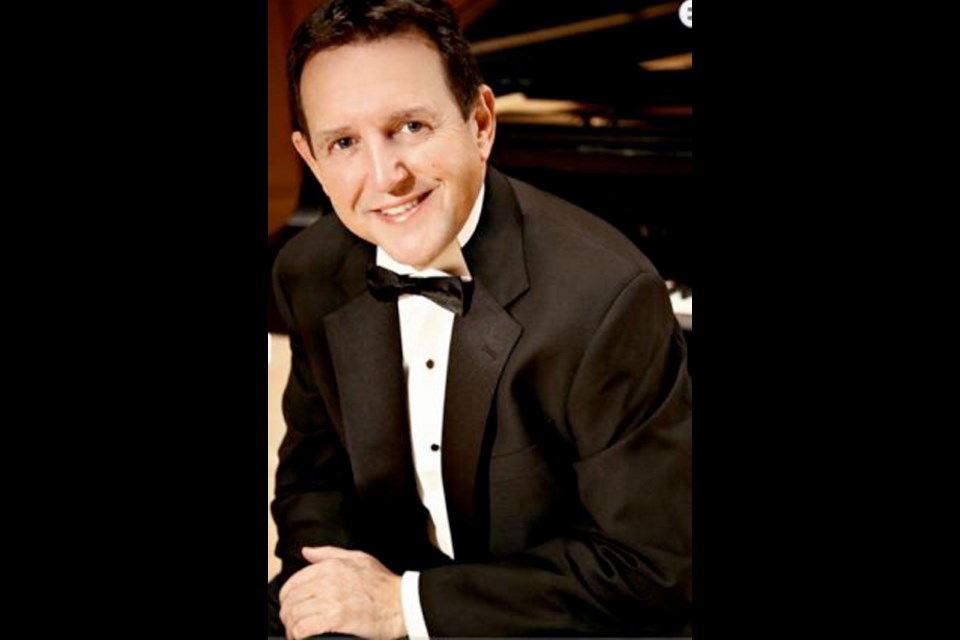What: Music That Speaks, with Terence Dawson, piano, and Robyn Driedger-Klassen, soprano
When/where: Monday, 8 p.m., Phillip T. Young Recital Hall (School of Music, MacLaurin Building, University of Victoria)
Tickets: Free admission
On Monday, the University of Victoria’s Orion Series in Fine Arts will sponsor a free guest concert devoted to contemporary music — two major American works, one short Canadian work, all featuring the Vancouver-based pianist Terence Dawson.
Dawson is a respected and widely travelled performer who has taught in the University of British Columbia’s School of Music since 1991 and is currently chair of its keyboard division. (He joined the UBC faculty after completing doctoral studies there with Jane Coop.)
Of particular note on Monday’s program is De Profundis (1992), by Frederic Rzewski, who, at 77, remains an important and influential figure in contemporary music. This strikingly original work, which Rzewski dubbed a “melodramatic oratorio,” is based on the long, moving letter Oscar Wilde wrote in 1897 to Lord Alfred Douglas, his former lover, from Reading Gaol, where he was serving two years at hard labour for “unlawfully committing acts of gross indecency with certain male persons.” The letter was first published in 1905, five years after Wilde’s death, with a Latin title drawn from the first words of Psalm 130: “Out of the depths have I cried unto thee, O Lord.”
Rzewski calls De Profundis a work for “speaking pianist,” and the performer, wearing a lapel microphone, does much more than play the piano. He gives rhythmical recitations of passages from Wilde’s letter. He sings, whistles, hums, laughs, utters nonsense syllables and makes all manner of other, precisely notated vocal noises — gasps, grunts, groans, sobs, sighs, barks. He uses the piano and his own body as percussion instruments. He even honks a “Harpo horn.”
“The music demands a combination of virtuoso technique and a total lack of inhibition on stage,” Rzewski writes, “thus virtually guaranteeing that no mediocre or conventional performer will dare to go near it.”
(Rzewski himself has recorded De Profundis twice, first in 1993 for the Swiss label Hat ART, later for a seven-CD set of his piano works released by Nonesuch in 2002.)
Dawson is a founding member of the Vancouver International Song Institute, which serves to advance the art-song repertoire in innovative ways, through concerts and interdisciplinary educational programs. This side of his career will also figure in Monday’s concert, when he joins soprano Robyn Driedger-Klassen, another institute faculty member, in Jake Heggie’s song cycle At the Statue of Venus (2005).
Heggie, who is based in San Francisco, is among the most prominent American composers working today. His operas are particularly well known, especially Dead Man Walking (2000), but he has written much else, including more than 250 art songs, many of them in the form of cycles.
At the Statue of Venus comprises six songs on texts by the playwright Terrence McNally, who wrote the libretto for Dead Man Walking. Heggie and McNally describe the cycle as “a musical scene for soprano and piano,” inspired by “the great concert scenas of Haydn, Mozart, Beethoven and Britten.”
The cycle tells a story: “An attractive woman waits in a museum by a statue of the Goddess of Love to meet a man she has never seen. Her thoughts and emotions are a jumble of hope, uncertainty and self-doubt. Will he like her? Will she like him?” (The first song is titled “The slacks were a mistake.”) She wonders why she, “a proudly successful modern woman,” allowed friends to fix her up with a man they claimed was Mr. Right — does Mr. Right even exist? “To be willing to be judged by another person — does anything make us more vulnerable but human, too?”
The works by Rzewski and Heggie both run about half an hour and comprise the bulk of the program. Dawson will open the concert by playing Listen (2014), by Kevin Morse, who lives in Sackville, N.B., and teaches at Mount Allison University.
Listen is a novel work whose point of departure is the sounds produced in the piano-turning process. These sounds, as Morse manipulates them, gradually coalesce into melody, and Dawson describes the result as a contemporary take on Mendelssohn’s “song without words.”
It is an apt curtain-raiser for a concert devoted to various forms of “music that speaks.”
